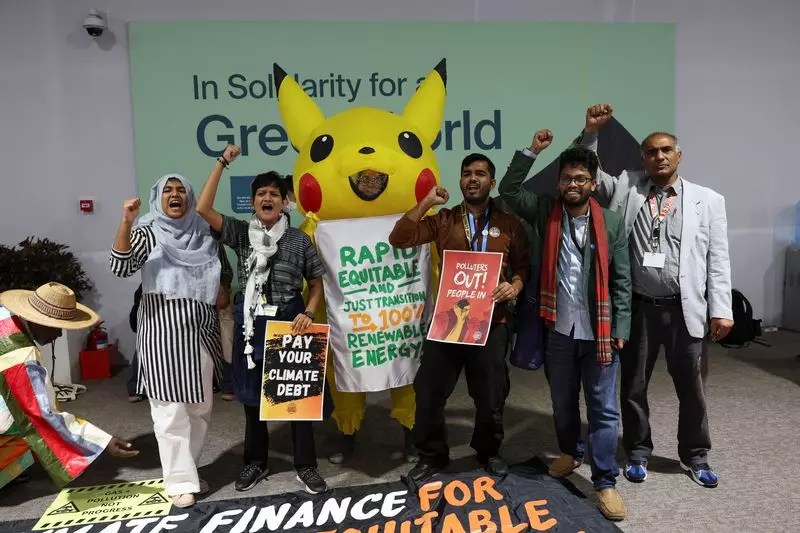At COP29 held in Azerbaijan, a coalition of nations grappling with conflict and environmental calamities has urgently appealed for a substantial increase in climate financing. They are calling for a commitment to double financial support to an ambitious target of over $20 billion annually. This demand is emblematic of the pressing need for these nations to adapt to both natural disasters and security crises, which have compounded the hardships faced by their populations. A letter advocating this appeal, shared with Reuters, underscores the desperation and resilience of these nations striving to secure a sustainable future amidst the chaos.
Countries positioned at the forefront of climate change challenges, like island nations threatened by encroaching seas and rainforest nations under pressure to preserve vital carbon sinks, represent just a slice of the picture. However, conflict-affected countries, laden with the additional burden of instability, find themselves in a particularly precarious position. An increasing number of private investors regard these nations as high-risk ventures, limiting their access to the much-needed capital for developing adaptive infrastructure and sustainable practices. This financial exclusion has rendered public funds, especially those administered by the United Nations, even more pivotal for communities that have faced displacement due to both warfare and climate extremes.
Formation of the Network of Climate-Vulnerable Countries
In response to these challenges, the COP29 Azerbaijan Presidency announced the establishment of a “Network of Climate-vulnerable Countries.” This initiative aims to unify the voices of climate-sensitive nations, including those in the g7+ group—a coalition of fragile states. This newly formed network is not merely a collection of voices but rather a strategic alliance aimed at advocating collectively for climate finance and enhancing the institutional capacities of member states to better absorb and manage financial resources.
Abdullahi Khalif, Somalia’s chief climate negotiator, expressed optimism about this collaboration, emphasizing the necessity for a united front among nations that require urgent assistance. He hopes that this platform will lead to meaningful changes that will aid countries in their efforts to adapt to climate effects while managing the ramifications of conflict. By fostering collaboration and establishing country-specific platforms, the network aims to streamline opportunities for investment in high-impact projects—paving the way for potential financial backers to see viable projects in regions often deemed too risky.
Distinct Challenges of Conflict-Affected Nations
While numerous nations have their own negotiating groups in international forums, conflict-impacted countries encounter unique difficulties that must be addressed. Advocates stress that crises such as flooding in South Sudan or Somalia exacerbate existing vulnerabilities to an extent unmatched in more stable developing nations. A striking statistic from UNICEF illustrates the severity of the situation: a child born in South Sudan in 2022 was astonishingly 38 times more likely to be displaced internally by climate-related disasters as compared to peers in Europe or North America.
Proof of the inadequacy of current funding structures is evident: despite the horrendous impacts of climate change on these nations, conflict-affected countries received a mere $8.4 billion in climate financing in 2022—only a quarter of the $33.5 billion deemed necessary according to a 2024 analysis from ODI Global. This disparity highlights a glaring shortfall in international efforts to support some of the globe’s most vulnerable populations. Mauricio Vazquez, head of policy for global risks and resilience at ODI Global, stated unequivocally that the current distribution of climate funds fails to adequately support those in most need.
As COP29 unfolds, it represents a vital moment for the international community to reassess its approach to climate financing, particularly for nations engulfed in conflict and instability. The call from conflict-affected countries to more than double financial aid stems from a place of urgency and necessity, underscoring the interconnectedness of climate change, conflict, and human security. The initiative to create a Network of Climate-vulnerable Countries not only highlights the struggles experienced by these nations but also represents a collective effort to advocate for justice and relief in the face of unprecedented challenges. It is incumbent upon the global community to acknowledge and respond to these calls for action with the seriousness and immediacy they demand.


Leave a Reply